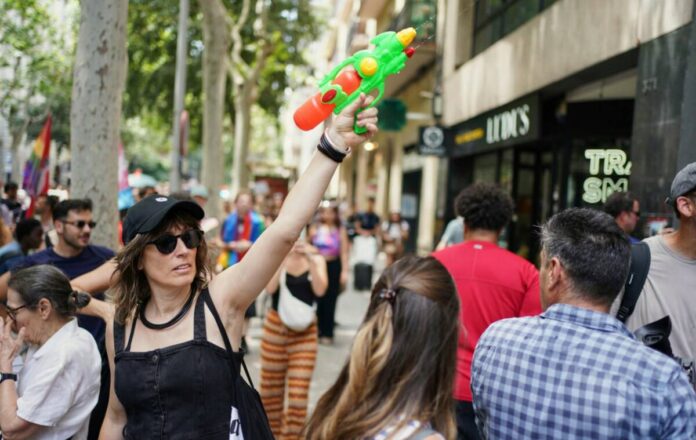Protesters Take to the Streets in Barcelona and Mallorca
Introduction to the Protests
Barcelona and Mallorca, popular tourist destinations, witnessed protests that drew attention to the impact of overtourism on local communities. Activists, armed with water pistols, sparked conversations about the challenges of rising housing costs and the shifting character of beloved hometowns. The protests unfolded on a sunny Sunday, aimed at igniting a discussion on the socio-economic strains faced by residents due to tourism.
The March and Its Participants
In a synchronized effort across southern Europe, thousands rallied not just in Barcelona but also in Mallorca, Granada, San Sebastián, Venice, and Lisbon. While thousands took to the streets of Palma, hundreds more voiced their concerns in other cities. Andreu Martínez, a resident of Barcelona, explained the sentiment driving the protests: "Barcelona has been handed to the tourists. This is a fight to give Barcelona back to its residents."
Personal Impact of Overtourism
Martínez, like many others, has witnessed dramatic changes in his neighborhood due to the rising influx of visitors. With a staggering 15.5 million tourists visiting Barcelona last year, he reported a 30% increase in his rent, driven in part by the surge in short-term rentals. The traditional shops that once characterized the streets have been replaced by souvenir shops and fast-food chains, contributing to a sense of loss among the long-time residents.
A Playful Protest with Serious Undertones
The use of water pistols might seem whimsical, but it served a deeper purpose. In Palma, around 5,000 people joined in, chanting slogans that highlighted their frustrations: “Everywhere you look, all you see are tourists.” While tourists caught in the squirt gun crossfire often laughed off the playful jabs, the message was clear—locals are feeling a strain from the tourism boom.
The Convergence of Issues
Throughout Spain, there is a growing pushback against short-term rental platforms like Airbnb. Activists are aligning their anti-tourism sentiments with the pro-housing movement, highlighting a shared discontent about the impact of mass tourism. The Spanish government’s recent mandate to remove 66,000 illegal holiday rentals demonstrates a recognition of this issue.
Voices of the Protesters
Amid the festivities, protesters were vocal about their plight. Holding signs like "Your Airbnb was my home," they expressed how the rise of short-term rentals has exacerbated the housing crisis. There was palpable tension during the march, particularly when demonstrators confronted a hostel, illustrating the raw emotions tied to the fight for affordable housing.
Reactions from Tourists
Interestingly, some tourists were sympathetic to the cause. Wanda Dorozenski, an American visiting Barcelona, noted that while getting squirted with water was unexpected, it highlighted deeper sentiments. “These people are feeling something personal, and it is perhaps destroying some areas of the city,” she recognized.
Government Responses and Regulations
The Spanish government is caught in a delicate balancing act—addressing the public outcry over housing while not jeopardizing an industry vital to the economy. With tourism contributing 12% to the gross domestic product, officials must tread carefully. Recent efforts have included Barcelona’s aggressive stance on short-term rental licenses, drawing the ire of platforms like Airbnb.
Criticism of the Short-Term Rental Model
As the protests continue, voices against Airbnb echo in the streets. Many residents argue that the platform is a convenient scapegoat for long-standing housing issues. Critics believe that the focus should shift toward sustainable tourism practices that consider the well-being of locals.
Broader Implications of Overtourism
The protests in Barcelona and Mallorca are part of a larger narrative unfolding in cities worldwide. As overtourism continues to strain local resources, conversations are growing around how to preserve the integrity and character of communities.
This situation in Barcelona and its surroundings invites reflection on the balance between welcoming tourists and maintaining a quality of life for residents. Residents like Txema Escorsa emphasize the need for community-first solutions as they call for a reevaluation of policies surrounding tourism and housing.
